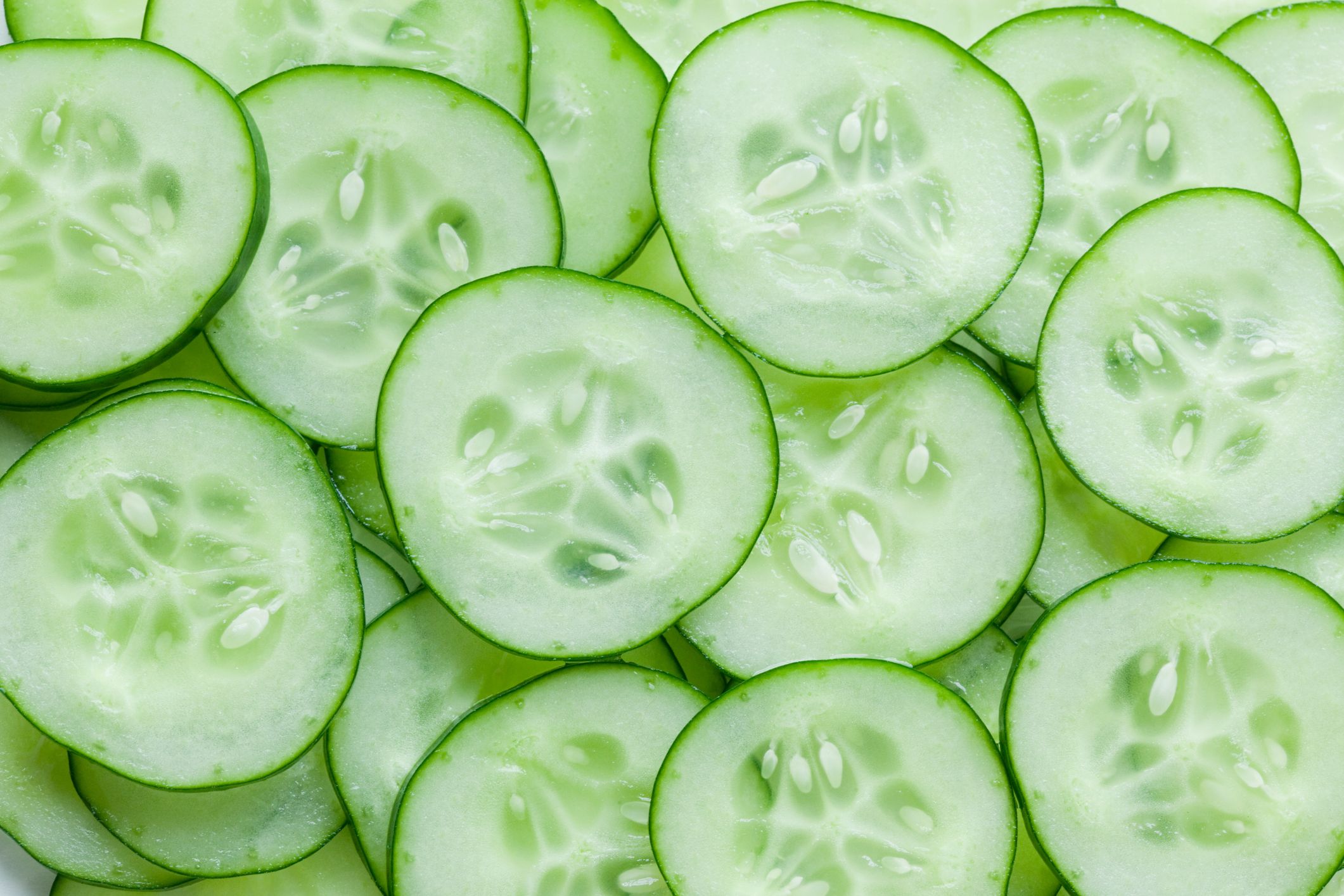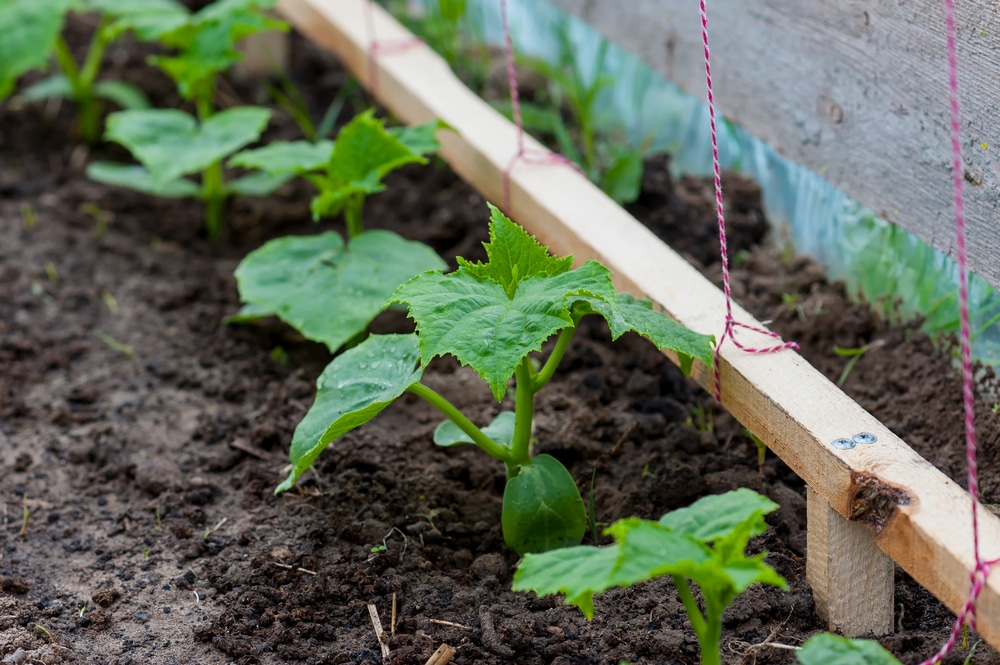Cucumbers are alkaline. It has a pH value of approximately 5.12-5.78. Some of its other variations, such as cucumber water, have different pH values. But they are all on the alkaline side. In order for you to easily grasp all the relevant information about the pH of cucumbers, how alkaline they can be, and if they have any acidic elements, I have included it all in this article. I would recommend reading the whole thing to get the full insight.
Why are Cucumbers Alkaline?
Cucumbers are alkaline because of their pH. pH determines the acid content. Its value is determined by the presence of acids. Low pH means the presence of more acidic contents and high pH means more alkaline content. In chemistry, something with a pH of more than 7 is considered alkaline. But according to the US Food And Drug administration, a food must have a pH of 4.6 or below to be considered acidic. So, in that sense, cucumbers are alkaline.
What is the pH of Cucumbers?
As mentioned, the pH value of cucumbers ranges from approximately 5.1 to 5.7. According to the pH scale, anything that is less than 4 is said to be strongly acidic. Hence, you can assume that cucumber is on the alkaline part. You might be wondering what exactly makes them alkaline, apart from the high water consistency. Cucumbers contain a lot of potassium. Potassium is an alkaline material. Hence, cucumbers are an alkalizing food. Given the volume of water it possesses along with some vital components, cucumbers offer a wide range of benefits. This is why they are a key element in salads.
Which Part of Cucumbers is Acidic?
Although cucumbers fall into the alkaline category, they consist of a few elements which can be deemed acidic. The primary components are glycolic acid, lactic acid, and salicylic acid.
Salicylic acid
Salicylic acid plays a significant role in the growth and development of cucumbers. It basically works as a defense mechanism as it protects cucumbers from bacteria, insects, etc. Moreover, it is a primary component that enables people to use cucumbers for skincare. It works as an antiseptic. Salicylic acid also caters to fungal skin infections and scaling conditions such as dandruff and psoriasis (condition of having red, flaky, and patchy skin).
Lactic acid
Through the fermentation of the lactic acid bacteria, lactic acid prevents the growth of undesired microorganisms in the cucumbers. It is essential in the pickling process (turning of pickles). In addition, lactic acid enhances the surface pigmentation of the cucumbers.
Glycolic acid
Glycolic acid is the one with the most active part. When you see people applying cucumbers or cucumber juice around their eyes, it is due to the contribution of lactic acid. It helps to prevent wrinkles as it can easily penetrate through cell walls due to its small molecular size.
Can Cucumbers Cause Acidity and Other Problems?
In general, cucumbers do not cause acidity. Due to its alkaline level, it can actually help combat acidity. Fresh cucumbers with a darker tint of green can easily help with your acidity. However, there are a few rare instances where cucumbers can cause acidity and make you all gassy. Mixing cucumbers with onions, hot peppers and tomatoes is not a good idea. The inclusion of vinegar is also a big no-no. It is also recommended to eat them raw, as it is more effective that way. To be more specific, pickled cucumbers can cause a lot of acidity, even more so for those who have a sensitive tummy. Since the item consists of vinegar, it is best if you avoid it, especially during the night. It might take a longer time to digest.
Gas and Bloating
As mentioned before, the existence of cucurbitacin is an acidic component on its own. Thus, it is not surprising that this induces indigestion in people, especially those with more sensitive tummies. It leads to bloating and flatulence.
Dehydration
Cucurbitacin, which is an ingredient in cucumber seeds, has diuretic properties. As a result, having too many cucumbers can lead to excessive fluid loss from your body. This, in turn, affects the electrolyte balance in your body and leaves you extremely dehydrated. So, even though cucumbers are a great source of water, you should be cautious about eating too much.
What Does Cucumber Contain?
It’s no surprise that cucumber mostly consists of water. About 96% of a cucumber is completely water. The other 4% consists of protein, fiber, very small amounts of fat, carbohydrate, vitamins, and minerals. Cucumbers contain a high level of B vitamins which make them great for growth. They also are rich in vitamin A and other sorts of antioxidants such as lignans that are considered great for consumption.
Why knowing the pH of Cucumber is Important?
Generally, it is important to know the pH as it properly shows chemical conditions and properties. PH can manipulate the behavior of said chemicals. Moreover, it can influence the taste of the cucumber as well. When it comes to plants and vegetables such as cucumbers, knowing the pH value is crucial. They are primarily measured to understand the quality of cucumbers. This includes their taste and other properties. Knowing the pH can also help you determine the shelf life of cucumbers. That is, you can understand when they will go bad. For instance, if stored properly, cucumbers can last approximately 2 weeks. The temperature for this must be around 55° F. But with the shift in pH level this duration can greatly increase or decrease. So, it’s best to know the pH level of your cucumber when cooking or storing it.
How Pickling Decreases Cucumber pH for Preservation
Cucumbers have a pH of 5.12 to 5.78. So, they are quite close to being normal pH. Now the issue with that is, having a pH close to 7 means these foods are more easily affected by all sorts of bacteria. As a result, cucumbers are easily spoiled. And need instant refrigeration or pickling to keep edible. One kind of pickling works by encouraging anaerobic bacterial growth. Add salt and water to your cucumbers to allow that to happen. These bacterias release lactic acid which decreases the pH of the cucumbers and prevents other harmful bacterias from affecting the cucumbers.
The salt also dehydrates the cucumbers making it even harder for the bad bacteria to colonize the cucumbers. And it’s not just the acids but the bacteria themselves also compete with nasty bacterias and out-colonize them to prevent decay. We also pickle using vinegar solutions. The vinegar and sugar in these solutions are strong acids that greatly enhance the pH of the cucumbers. And this as we’ve said before prevents the invasion of foreign bad bacterias that cause us harm.
Store-Bought Fresh Cut Cucumbers Are Less Acidic
Store-bought pre-cut cucumbers are a bit less acidic than fully intact cucumbers. A fresh-cut batch of cucumbers will have a raised pH of 6.71. Here’s why. Cucumbers spoil fast after they have been cut. Besides bacterial invasion, their cellular integrity starts diminishing fast. So, companies add a lot of preservatives that increase the pH of cucumbers greatly. And the acids inside the cucumber also start to break down as the days pass by. So, the cucumber becomes more and more basic as it waits to be bought on the supermarket shelves.
Ideal Soil pH For Cucumbers
Just like most fruits and vegetables, cucumbers prefer a neutral soil pH of 6.5 – 7. A pH of 7 will ensure that the soil has the right amount and type of bacteria that is essential for seed and plant growth.
It also ensures that the proper amount of nutrients is being transferred to the cucumber plant for optimum growth. Now how do you ensure the right pH?
Test the soil pH
The best way to test soil ph is to send it to a lab. But, if you want to do it yourself, you can. Take a scoop of your garden soil (4-6 inches deep) and take out anything else besides the soil itself. Mix it with a cup of freshwater to make a muddy solution. Now, mix ½ cup of vinegar with it. If the soil becomes fizzy or bubbly, then your soil is alkaline. On the contrary, if you use baking soda instead of vinegar and the soil becomes fizzy then your soil is acidic.
Balance soil pH
If your soil is too alkaline you can add sulfur, aluminum sulfate, sulfuric acid, to reduce the pH of your soil. If your soil is too acidic then mixing pulverized lime or granulated lime can increase your soil pH. Related Topics pH of NaCl pH of Beer pH of Acid Rain pH of HCl pH of NH4Cl pH of Coffee ph of Lactic Acid pH of Milk pH of Hydrogen Peroxide pH of Lemon pH of Watermelon pH of Tomato pH of Potato
Conclusion
Now that you have made it to the end of the article, I hope you have no more confusion about the pH of cucumbers and whether they are alkaline or acidic. Cucumbers have numerous benefits and can do wonders for your body if consumed in moderation.



